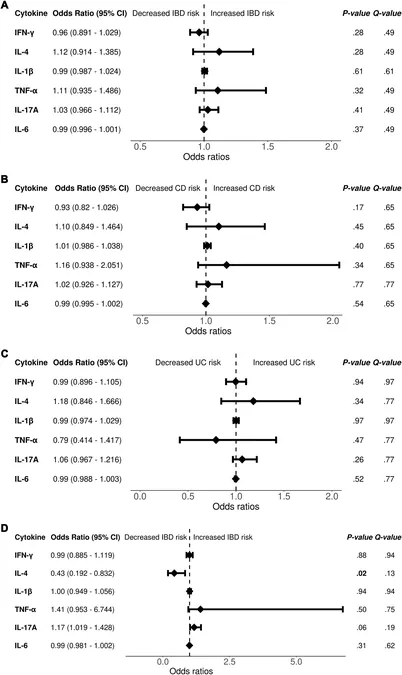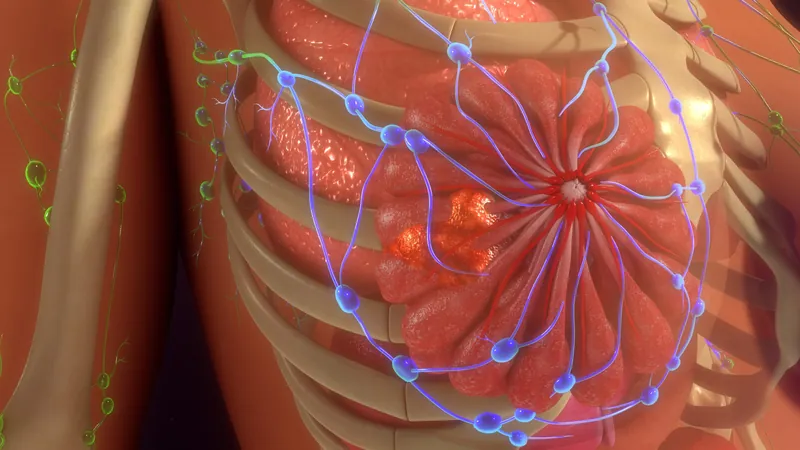
Groundbreaking Discovery: Inflammatory Bowel Diseases May Be Detectable Right From Birth!
2024-10-11
Author: Rajesh
Introduction
The rise in inflammatory bowel diseases (IBD) across the Western world is alarming, as these chronic conditions lack a cure. In Denmark alone, approximately 50,000 individuals suffer from either Crohn's disease or ulcerative colitis—a staggering doubling of cases in just the last two decades. While many patients are diagnosed in early adulthood, a significant number are identified during childhood, particularly those exhibiting symptoms like worrisome weight loss, debilitating abdominal pain, persistent diarrhea, and alarming rectal bleeding.
Groundbreaking Study
In a groundbreaking study led by researchers at the Center for Molecular Prediction of Inflammatory Bowel Disease (PREDICT) at Aalborg University, evidence has emerged suggesting that children diagnosed with IBD before the age of six may display biological changes linked to the disease right from birth. The findings, recently published in the prestigious journal Gastroenterology, signify a potential shift in how we approach the early detection of these conditions.
Research Insights
Ph.D. student Jonas Julius Rudbæk, part of the PREDICT team, elaborates, "By comparing blood samples from newborns who later develop IBD to those who do not, we gain insights into what happens in the body before any symptoms are present. Since very young children often lack the ability to articulate their pain, this research opens the door to potentially screening newborns for early signs of the disease, enabling us to take preventive actions early on."
Caution in Interpretation
While the research reveals an exciting link, Rudbæk is careful to stress that it is still in its infancy. "This is the first time such a connection has been documented globally, marking a significant milestone. We need to delve deeper into understanding the intricacies of what we've discovered."
Understanding IBD
IBD is characterized by an overly active immune system that leads to chronic intestinal inflammation, resulting in severe gastrointestinal symptoms and fatigue. In recent years, it has been uncovered that certain inflammatory markers can be detected in blood samples up to a decade before a formal diagnosis is made, suggesting that the disease forms much earlier than prior knowledge indicated. However, the pathology of IBD remains complex, and researchers often struggle with limited biological samples collected pre-diagnosis.
Specific Group of Children
This novel study illustrates that only children diagnosed before six years old show significant biological changes in their blood at birth. According to Rudbæk, "We observe these early indicators of IBD solely in very young children. Those diagnosed later in childhood do not show the same changes at birth, indicating we are identifying a specific subgroup of children most severely affected by the disease. Thus, exploring preventive strategies for this group becomes imperative."
Importance of Resources
Professor Dr. Med. Tine Jess, the director of PREDICT, highlighted the importance of using Denmark’s health data and biobank resources, stating, "Our study exemplifies how these invaluable resources can yield crucial insights into disease origins. The knowledge we gather from this research holds the potential to prevent a variety of chronic conditions, including inflammatory bowel diseases—not just in Denmark, but globally."
Future Implications
As this research continues to unfold, it raises essential questions about early screening and intervention that could drastically change the lives of children at risk for IBD. Parents and healthcare providers alike should stay informed as these developments progress, potentially paving the way for a future where IBD can be caught and managed before symptoms ever take hold!


 Brasil (PT)
Brasil (PT)
 Canada (EN)
Canada (EN)
 Chile (ES)
Chile (ES)
 España (ES)
España (ES)
 France (FR)
France (FR)
 Hong Kong (EN)
Hong Kong (EN)
 Italia (IT)
Italia (IT)
 日本 (JA)
日本 (JA)
 Magyarország (HU)
Magyarország (HU)
 Norge (NO)
Norge (NO)
 Polska (PL)
Polska (PL)
 Schweiz (DE)
Schweiz (DE)
 Singapore (EN)
Singapore (EN)
 Sverige (SV)
Sverige (SV)
 Suomi (FI)
Suomi (FI)
 Türkiye (TR)
Türkiye (TR)